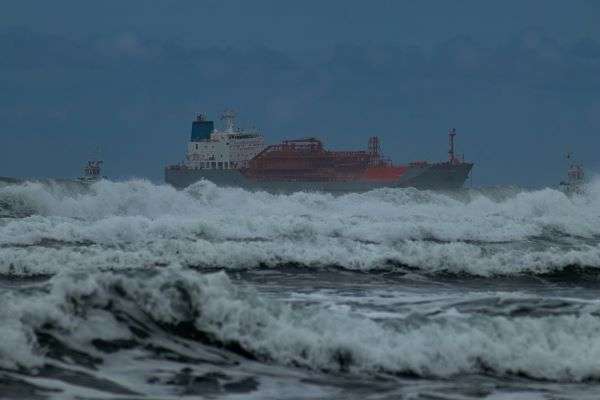Ships opting to sail around Africa’s southern tip to avoid the Red Sea’s Houthi militant threats are grappling with adverse weather. This situation has already resulted in one ship running aground and another losing over 40 containers. CMA CGM SA reported that its vessel, CMA CGM Benjamin Franklin, lost 44 containers due to unexpectedly harsh weather off the South African coast, with an additional 30 damaged. A.P. Moller – Maersk A/S also reported a delay in a ship’s arrival into Cape Town due to unfavorable sailing conditions.
Impact on Shipping Routes and Traffic
The storms near the African coastline are disrupting a crucial route that vessels have been using to evade Yemen’s Houthi militants in the Red Sea. Container ships, in particular, have been rerouting thousands of miles around the continent. However, traffic near South Africa is expected to return to normal as weather conditions improve.
Another ship ran aground northwest of Cape Town earlier this week due to the adverse weather and is currently awaiting salvage near the country’s waters. The impact is also evident in data tracking ship arrivals at the Cape of Good Hope, Africa’s southern tip. The number of deep-sea cargo vessels arriving there earlier this week dropped to 18 ships, the lowest single-day count since at least October, according to Clarkson Research Services Ltd., a unit of the world’s largest shipbroker.
Vessel tracking data indicates that some of the affected vessels paused their journeys to wait out the bad weather, while others appear to have taken wider routes around the African coast.
The recent storms near the African coastline have been significantly impacting shipping routes and traffic, causing delays, damages, and even vessels running aground. As weather conditions hopefully improve, the disruption to these crucial shipping routes is expected to lessen, allowing vessels to navigate more safely and efficiently in the future. Proactive measures for supply chain stability are crucial in these situations.





